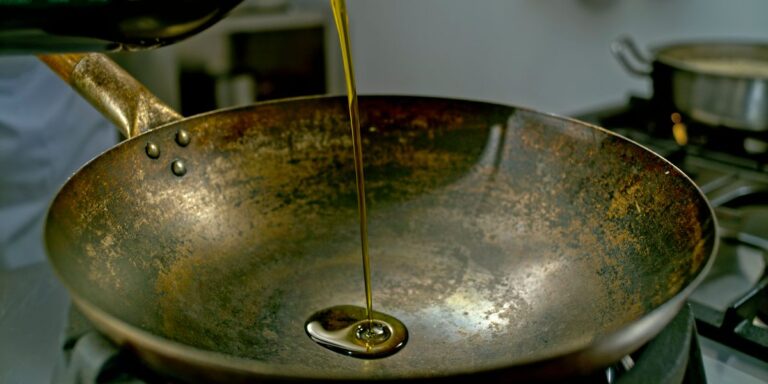You've been cooking all evening and you're finally ready to sit down to eat, but there's still oil left in the pan.
What would you do? Just secretly flush it down the drain? Just this once? Just for a little while?
According to one plumber, this thoughtless act could ultimately cost you £500. Experts from Magnet Kitchens have teamed up with plumber Tom Watts to warn people about the dangers of pouring grease down their sinks.
Mr Watts said: “Oils and grease dumped down your kitchen drain can dry out and harden, causing serious blockages in the pipes, which can cause damage to your sink and all your kitchen appliances – your dishwasher, washing machine and boiler.”
“Once the oil hardens, the clog can no longer be removed with a plunger and a plumber will have to come and use expensive machinery to vacuum or unclog the clog with a wand.”
Plumbers warned that it could cost more than £250 to repair the blockage and the time it takes to unclog it, and said that if the pipes are permanently damaged and beyond repair it could cost more than £500 to replace them completely.
Kyaaa.
How to Properly Dispose of Grease and Oils
The experts at Magnet Kitchen also warn against this dirty habit: They say: “Instead of pouring grease down the sink, collect it in a container or put it in a separate bin and dispose of it once it has cooled and solidified.”
Also, since frying oil can often be reused, it's important to store it in a cool, dark place once sealed until you need it again.
How to protect your drains
In addition to keeping grease and oil down the sink, Magnet recommends these three tips to avoid damaging your drainage system:
Purchase a strainer or filter for your kitchen sink drain
Most kitchen sinks come equipped with a strainer or filter to prevent larger pieces of food and grease from going into the plumbing, but installing a larger filter is a great option to prevent clogged plumbing.
Once leftovers or food have accumulated, simply remove the strainer and dump the contents into your compost bin.
Always throw away food residue from your plates and utensils in the trash
While it may seem practical to simply rinse away small pieces of food before washing your dishes and utensils, even the smallest pieces of food can cause clogs and over time lead to a large buildup of hardened food in your drain system.
To avoid this, simply throw any food residue from your plates or kitchen utensils in the trash instead of pouring them down the sink.
Clean your sinks and drains regularly
If you notice any changes to your drainage system, it's best to flush your sink with a mixture of baking soda and vinegar. This mixture will help break down any existing grease and oils and prevent clogs. Afterwards, simply run boiling water down the sink to remove any remaining residue.


